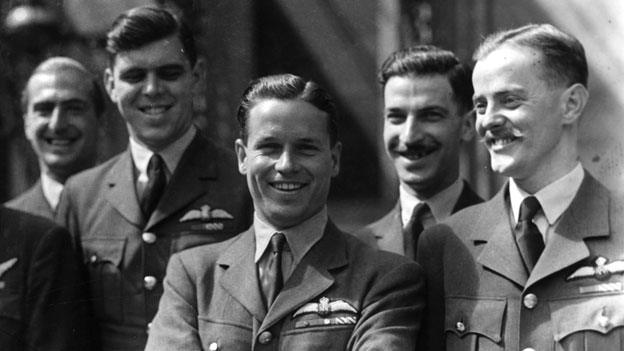Dambusters raid airman's gallantry medal sells for £105k
- Published
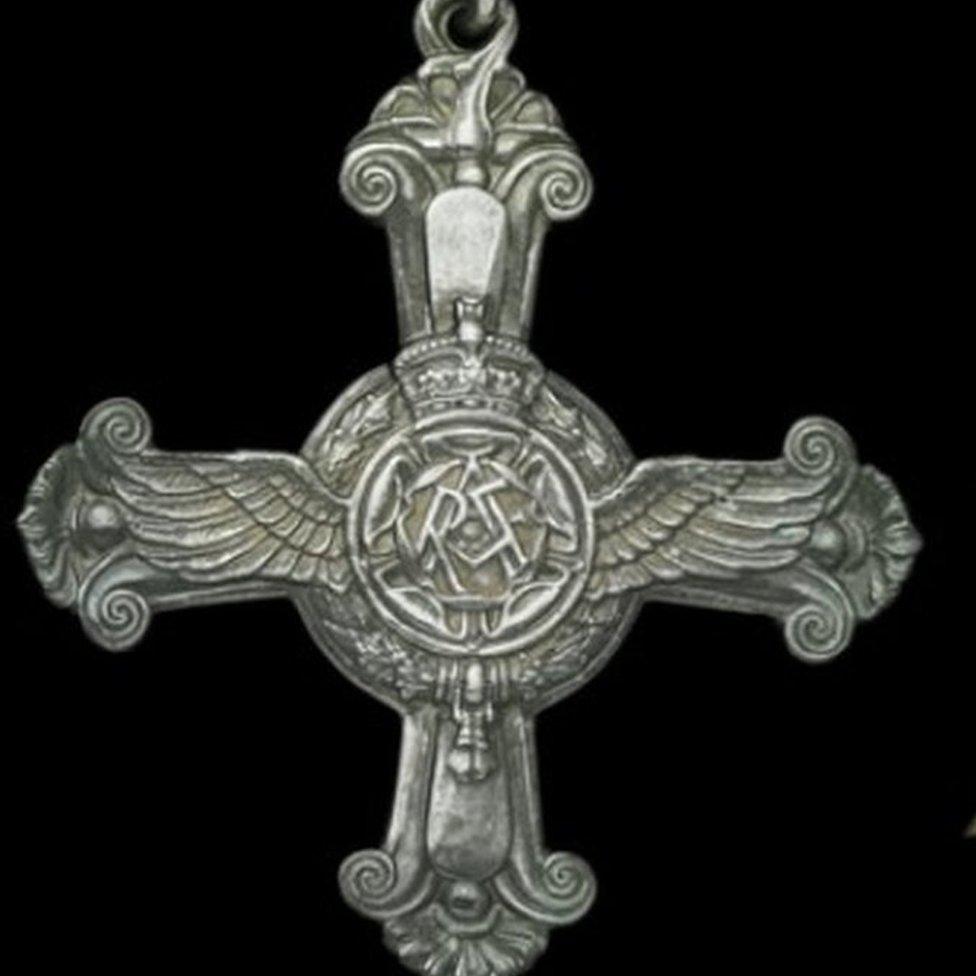
The medal's sale exceeded the expectations of the auction house
A medal awarded for gallantry to a pioneering airman on the Dambusters raid has fetched £105,000 at auction.
The Distinguished Flying Cross was given to Flt Lt Edward "Johnnie" Johnson, who flew in the 1943 raid on the dams in Germany.
Flt Lt Johnson, of Blackpool, was one of five recipients of the medal.
He is also credited with inventing the "Johnson Sight", used to provided the exact delivery of the bouncing bomb that breached a dam.
A spokesman for auctioneers Spink said it had expected the medal might sell for about £70,000 but, in reality, the final price to a UK-based collector was £105,000.
"It exceeded all of our expectations, the atmosphere in the auction room was electric," he added.
On the night of the RAF raid on 16 May 1943, Flt Lt Johnson was part of the main Strike Force under Squadron Leader Guy Gibson and witnessed the breaching of the Möhne as his own Lancaster headed for the Eder Dam.
During the training raids on Derwent Reservoir, crew members were finding it hard to release bombs while holding a wooden triangle bomb sight.
Johnson came up with his own solution, "using a long piece of string, fastened each side of the clear bombing panel".
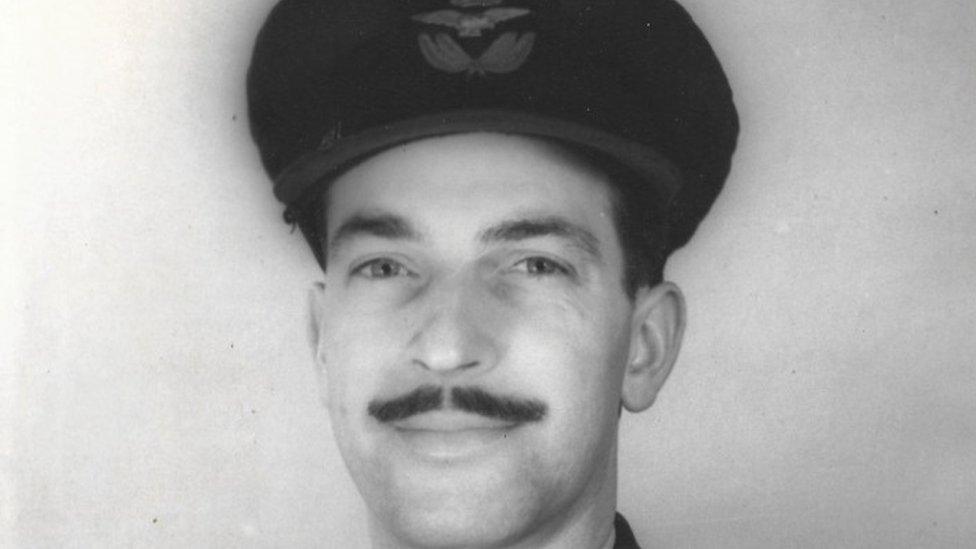
Flt Lt Edward Johnson was one of five airmen to be awarded the DFC
Approaching the Eder Dam, his plane made several low-level dummy runs, each pass being a hair-raising event due to the steep climb required to bring the aircraft away from the surrounding terrain.
The final run saw Flt Lt Johnson score the direct hit that breached the dam.
"I didn't actually see the dam burst because I was out of sight," adding: "But it was obvious what had happened by the noise on the intercom from the rear gunner.
"The water was absolutely pouring down this narrow river, causing a veritable tidal wave. It was a terrifying sight. We could see cars being engulfed."
The attack on the dams in the Ruhr Valley killed about 1,300 civilians.
Eight out of the 19 bombers involved were shot down. Three men were captured and 53 of 133 aircrew were killed.
Lincoln-born Flt Lt Johnson lived in Gainsborough and Leeds before moving to Blackpool, where he established a boarding house before the outbreak of the Second World War.
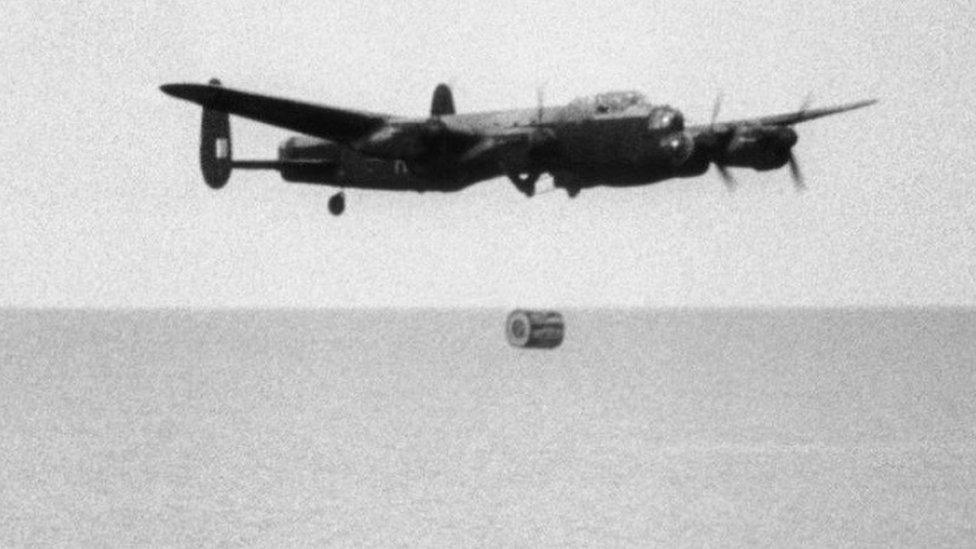
Flt Lt Johnson improvised his own bomb sight in training
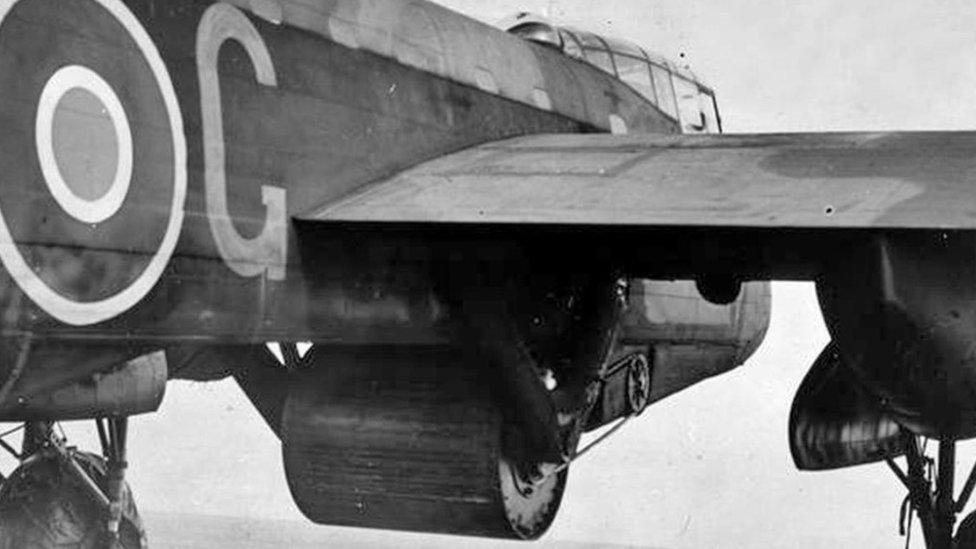
About 1,300 people were killed in the flooding caused by the bomb

Why not follow BBC North West on Facebook, external, X, external and Instagram, external? You can also send story ideas to northwest.newsonline@bbc.co.uk
- Published2 September 2013
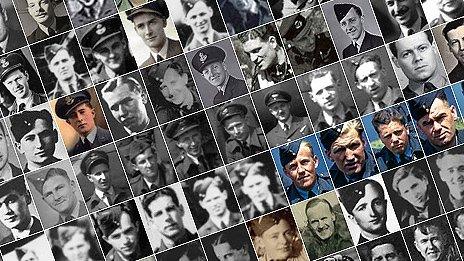
- Published16 May 2013
- Published15 May 2013
